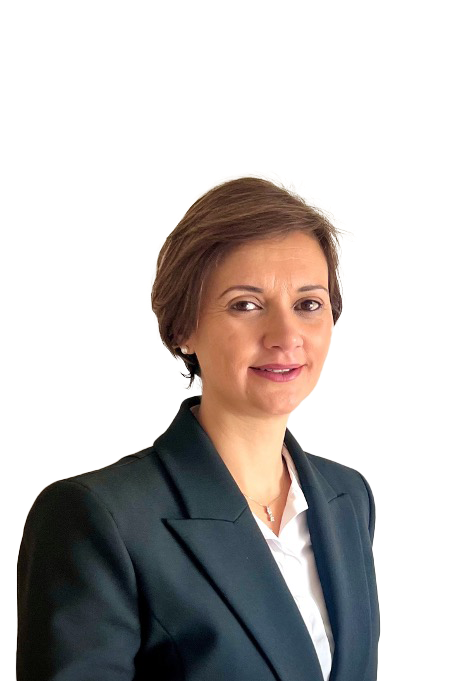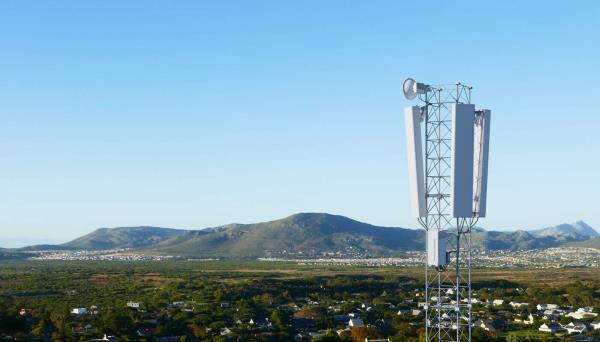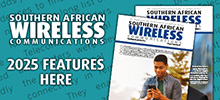02 April 2024

An interview with Majda Lahlou Kassi, vice president and head of customer unit West Africa and Morocco, Ericsson
Question: You’ve only recently been appointed to your current role at Ericsson: what can you tell us about your experiences so far?
I joined Ericsson 1998 and have worked with them for the last 25 years. I came to the company when we really started to see mobile technology coming into Africa.
At my beginning with Ericsson, I had responsibilities over North Africa, from Morocco (my home at the time) to Egypt, Sudan, etc. For the last five years, I have been working in sub-Saharan Africa, mostly on the western part of the continent, but I do also have clients on the eastern part in Madagascar, Tanzania, Mauritius, and so on. I’m in charge of three major groups on the continent; Maroc Telecom, Orange, and Axiom Group.
When you start a new role, you go out and meet the teams that meet the customers and get their feedback. My first 90 days is all about assessing how we’ve been performing, both from internal efficiencies and ways of working, but also how well we are serving our customers - what are their challenges, what are their priorities, how do we help them serve in this very complex environment?
Africa as a continent has a lot of challenges of its own, but there are also all the global challenges that hit Africa very hard, like inflation.
Question: What are your views on the current state of play of digital transformation in West Africa, and how will Ericsson help drive efforts forward?
When we talk about digital transformation, we must look at it in a holistic view.
Africa has realised post-pandemic that there is so much that can be done in terms of relying on new digital platforms to transform not only businesses and the way we address the consumer, but also to transform the resilience of society.
Before COVID-19, we were talking about how to make sure that we have ready availability as a priority, how we could help small enterprises gain access to financing; but now digital infrastructure has become essential to take society to the next level.
During the pandemic, 4G uptake across Africa was phenomenal - unlike other continents, fixed broadband penetration is very low. Since then, we’ve seen double-digit increases in 4G in most of the countries in West Africa.
Connectivity is the basis for digital transformation, but the operators are asking what can they do, how can they help the enterprises? That help comes in many forms.
First, it’s about building digital skills - we’ve been bringing in fresh graduates from across the continent and putting them through a structured programme.
The second thing is helping the operators to unleash the potential that they have from their networks. We often have this discussion with our customers and partners, through exercises that deliver insights into their networks. One example is fixed wireless access (FWA), one of the most important use cases for 4G, and 5G too. With such low fixed broadband penetration, particularly in West Africa, FWA can help the operators monetise their investments, making use of unused capacity and increasing efficiency. Time to market is very fast, and the cost is cheaper than fibre.
We see how smartphones have completely transformed society in the way the interaction between small and medium enterprises, and consumers. It’s all about mobile money, financial inclusion. This is having a huge impact on digital transformation, in West Africa, the continent, and the world.
Question: Looking specifically at West Africa and Morocco, how do customer demands differ from the rest of the continent?
Maturity levels vary widely across the continent. South Africa, Morocco, Egypt - these countries are a bit ahead of the game in terms of digital infrastructure, while other parts of West Africa lag.
But what is fundamentally similar is end user behaviour. The consumers and especially the younger generation (the digital natives) demand the same end user experiences as the rest of the continent. They expect to use the same applications, play the same games, interact in the same way with their friends. West Africa, like the rest of the continent, has one of the highest rates of youth generation. From that perspective, when we look at consumer behaviour, there is no difference.
During the pandemic and after it, we’ve seen fast-growing data consumption in all networks. Operators are trying to catch up on that growth and make sure that their infrastructure can handle this, as well as the increase in use of streaming videos, gaming, etc. All this usage is becoming more widely spread, so I think the growth is there and it will continue until we reach the next level - the introduction of 5G. Most of our customers in West Africa have started commercial trials and even small-scale deployments, and they are now asking “what can we do with it?”
Question: What should global players consider when embarking on business in Africa?
We’re a global company, but a local player – that’s very important for anyone that comes to the continent. Africa comprises many countries with multiple realities. When you come in, you have to be open to understand the realities of each country you operate in and see how you can adapt to this reality to be successful.
It’s important for global companies to bring in knowledge and experience to new markets, but it’s also very important to be curious and gain insights from these markets. We try to do this all the time, in every new country and with every new customer. We do a lot of research and analysis, and leverage on our knowledge on how to manage and operate the networks to bring insights to the operators on how to evolve the network.
This global reality, the knowledge and experience sharing that comes from all the experience we have across the globe, is matched to the reality of the continent. One very good example is that we’ve looked at the reality of the continent in terms of need for efficiency, power, cost, etc. We took this input, and we went to our R&D centres and we managed to develop a product rating that is better fit for African realities. This product has now become a global product.
Question: With Morocco developing mass solar farms with the ability to provide power to Europe, is the country becoming one of the leaders on sustainable power?
Absolutely. Morocco is one of the leading countries in renewable energy and that has been on the country agenda for a very long time.
If I take it from the telecom side, one of the things that gives me pride is that we’ve started with this strategy of leveraging on renewable energy in powering our sites very early in the development of our technology. I still remember back in 2000, we were among the very first teams to launch what we called ‘Sun Sites,’ which is solar powered sites. Today, the use of solar energy in rural sites is becoming mainstream. We believe that if we want to connect all the rural areas, we need to look at renewables.

Question: What do you feel are the key challenges in the region when it comes to delivering meaningful connectivity and how does Ericsson address these?
It all depends on what we mean by meaningful connectivity. The availability of digital infrastructure is still in its build up phase and we continue to advocate for the importance of accelerating this development and the positive impact that it has on the society at large.
One of the challenges we see today is device affordability. Now we’ve reached a level where we are somehow at sub-$100 4G devices - which are still quite expensive for a large part of the population - we do believe that by just having a smartphone in hand, we can unleash the full potential.
We’re also seeing challenges with spectrum. If we want to see these fast networks, we need to have spectrum that can be used for any technology, be it 2G, 3G, but most importantly for the newer generations, 5G, etc. The question of spectrum neutrality becomes essential for the development of the networks moving forward.
A topic that is always discussed is use cases. How can we unleash the potential of the network by creating an ecosystem and a way to collaborate around the capabilities of the network? When we look at the industry, it’s all about 5G, but for us on the continent, we continue to work with our customers to see how they can unleash the potential of 4G. Orchestrating the ecosystem can sometimes be challenging.
There are so many things that are happening across the continent, so many startups and good ideas coming from the younger generation, yet they need some support. Financing could be one of the challenges etc., so that they can leverage on these new ideas on how to transform the continent.
Question: What are your expectations for the region in 2024 and beyond?
I think 2024 is going to be another challenging year, not only for the continent, but globally. We are looking into how we can support in the best way by becoming more efficient ourselves in the way we address these challenges.
The continent itself is going through a major transformation on many fronts, economical, geopolitics, etc. That context makes it challenging for us to predict what could happen. We can see some challenges in delivering in some countries for safety reasons; Ericsson puts the safety of our people at a priority.
There’s also the question of when the 5G licences are coming into our countries. There is still a lot of discussion, some have taken that step already and we’re there to support them, some are still assessing, and we are trying to help them get the right insights.
Overall, we like to be optimistic, and we believe still in the potential of the continent. We continue to see the right foundation for growth, and that’s why we’re putting so much effort on staying very close to our customers. I’ve been there with them, to help them unleash the full potential.






